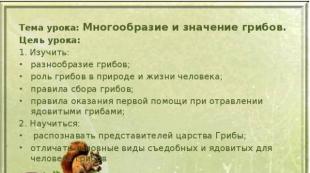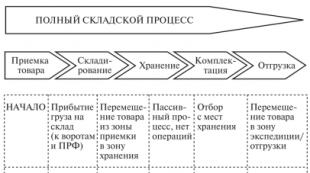What poisoned the Khattab terrorist. Khattab lost his right arm How Khattab was destroyed
The organizer of the explosions of residential buildings in Moscow, field commander Khattab, was destroyed in Chechnya on March 19 of this year. His elimination was probably the most successful special operation since the assassination of Dzhokhar Dudayev during the first Chechen war. Kommersant correspondents managed to find out some details of how the KGB dealt with the Black Arab. In any case, the version proposed by the security services looks very plausible.
The Russian special services began hunting for Khattab back in 1996, after he destroyed a column of the 245th motorized rifle regiment from an ambush near the village of Yarysh-Mardy in the Argun Gorge. Then 53 soldiers were killed and 52 were wounded. True, the Black Arab, who was already sentenced to death by the Ministry of Defense and the FSB at that time, was lucky and managed to avoid the ambushes prepared for him by the special forces. And even the missiles that the feds aimed at his satellite phone didn't get him.
Khattab survived after being seriously wounded in 1999, when his and Shamil Basayev's detachments entered Dagestan. The biography of the terrorist, whom the operatives dubbed Hairy (Maskhadov they call Eared, and Basayev - Lame), ended when the Russian special services decided to remove him. And it was in the autumn of the same year, even then it became clear that the explosions of residential buildings in Moscow, Volgodonsk and Buynaksk were organized and financed by the Black Arab.
Fighters from the Alpha and Vympel special groups of the FSB antiterrorist center, the GRU special forces and the Vityaz detachment of the Russian Interior Ministry were the first to be in Chechnya along with the troops. They had their own task: to find, capture or destroy the leaders of the resistance. One of the first numbers on this list was Khattab.
The commandos say that on several occasions a terrorist field commander practically escaped their grasp. The FSB was able to attract a person from Khattab's detachment to cooperation. According to his information, it became known that the Black Arab was in the triple ring of protection. Moreover, no one can approach Khattab, the Arabs from his guards do not let anyone in. The ban even applied to some field commanders with whom he fought during the first Chechen campaign.
But despite this, the militant agent managed once to put an electronic "beacon" in the Khattab camp. With its help, it was possible to accurately determine the location of the field commander. But, the operation, which had already been scheduled, fell through for technical reasons: the battery ran out in half an hour, and this time was not enough for the search group. There were several more attempts to capture Khattab, but they failed, the FSB decided to use poison. By the way, the poison was replaced with a more modern poison. This composition was impregnated with a message that was sent from Saudi Arabia to Khattab (it was intercepted by FSB agents). Any contact with the letter was fatal, and the effect of the poison only intensified over time. The entire chain through which the letter was sent was doomed in advance. The recipient who opened the message was supposed to die immediately, and the rest - after a while.
FSB sources say that the letter caused the death of not only the Black Arab, but at least ten people close to him and couriers.
When the Chechens realized that the letter was poisoned, they decided to use it against the feds. Shamil Basayev ordered the letter sealed in polyethylene to be placed in a cache of weapons near the village of Gorny Alleroy, Nozhai-Yurt District. Then the militants reported the information about the hiding place to the federal forces through their acquaintances Chechen policemen. The cache was discovered by army intelligence - the sergeant who found and examined the letter, and the commander of the battalion in which he served, died. In the meantime, the army leadership was trying to figure out the causes of their death, the letter as a possible source of information about the militants was sent to the FSB. Many more people could have died if at that time there was an FSB officer on a business trip in Chechnya, who took part in the development of the liquidation of Khattab. Before being sent to Russia, they brought him a letter. As soon as he saw the familiar envelope, the officer immediately called for an ambulance helicopter. As a result, he saved his life, but became disabled. The letter that killed Khattab and many others was destroyed.
The operation to capture Abu Darr, the closest associate of the Chechen field commander Emir Khattab, ended tragically. Counterintelligence officers failed to take the militant alive. In the ensuing firefight, the military commandant of the Kurchaloevsky district of the Chechen Republic, Colonel Sergei Kislov, was killed. Abu Darr and two of his guards were killed.Counterintelligence officers have been preparing for this operation for a long time. The department of the federal security service for the Chechen Republic hunted for Abu Darr for almost a year. During this time, all the routes of his movement were clarified. A couple of weeks ago, the FSB officers received operational information that Abu Darr was going to make another sortie "through towns and villages" on May 17th. Presumably, his route was to pass through the village of Oktyabrskoye, not far from which the ambush was set up. The capture group included employees of the FSB for the Chechen Republic and the military commandant's office. Initially, the operation was planned to be bloodless. The cars that Abu Darr and his guards were supposed to drive were going to be stopped on the road under the pretext of checking documents. And then "twist" the unsuspecting militants. But this idea failed: the capture group included people whom the militants knew by sight.
May 17th. Near the village of Oktyabrskoye. At first everything went according to plan. Two Zhiguli cars appeared on the road - the seventh and thirteenth models. According to operational information, it was on them that Abu Darr and his guards were supposed to go. When the cars drove closer, it became clear that this was indeed Khattab's closest associate, accompanied by five militants. One of the employees of the military commandant's office signaled to the cars to stop. The fighters slowed down. Sergei Kislov approached the car, intending to ask for documents... And then one of the guards of Abu Darr identified him as the military commandant of the Kurchaloy district. The gunman immediately opened fire to kill. The feds returned fire. Having lost three people (Abu Darr himself and two guards), the militants surrendered.
As a well-informed source at the headquarters of the joint group of forces told the Utra correspondent, Sergey Kislov killed Abu Darr:
- The guard hit Kislov in the neck. However, Kislov, already being mortally wounded, managed to shoot at Abu Darr. Khattab's emissary was killed on the spot. Kislov himself died a day later in the hospital.
For the Chechen separatists, the loss of Abu Darr is a big blow. First, his death may for some time deprive the militants of some of the funds coming from foreign extremist organizations. The fact is that this citizen of Saudi Arabia was known not only as a close friend of Arbi Barayev, the right hand of Khattab, his emissary and former head of security, but also as a representative of one of the most influential extremist Arab organizations, Al Haramein, from which Chechen fighters receive financial assistance(In particular, "Al Haramein" is the main sponsor of Khattab). It was Abu Darr who was involved in delivering money to the militants.
Secondly, Abu Darr was quite a popular figure among Chechen fighters. And not only as a representative of a sponsoring organization. At the end of June last year, he acted as the organizer of the defense of the settlement of Serzhen-Yurt. Then the federal forces failed to capture Abu Darr: after a week of fighting, he broke through the encirclement and went into the mountains. After this incident, he was entrusted with the command of the largest Khattab detachment of 500 bayonets. Recently, Abu Darr also served as Khattab's curator in charge of sabotage and terrorist activities in the Grozny, Shali and Kurchaloy regions of Chechnya. His call sign - "Herat" - was known to all field commanders. And it was Abu Darrom Khattab who planned to replace Shamil Basayev.
Amir ibn al-Khattab(real name - Samer Saleh as-Suwaylem(Arabic ثامر صالح عبد الله السويلم); April 14, 1969 - March 20, 2002) - field commander, originally from Saudi Arabia, one of the leaders of the armed formations of the self-proclaimed Chechen Republic of Ichkeria in the territory Russian Federation in 1995-2002, a supporter of the creation of an Islamic state in Chechnya.
He preached the ideas of Salafiya and the religious holy war (“ghazavat”), the practical implementation of which he was engaged in before Chechnya, participating in hostilities on the side of the Islamists in Afghanistan (1987-1992) and Tajikistan (1993). He was one of the leaders of the Wahhabi organizations "Islamic International Peacekeeping Brigade" and "Supreme Military Majlisul Shura of the United Forces of the Mujahideen of the Caucasus."
Biography
As his real name before his death was called Habib Abd al-Rahman(spelling options - Habib Abdul Rahman, Abd al-Rahman, Habib ar-Rahman), after - Samer Saleh as-Suwaylem.
The exact year and place of birth are unknown (according to some reports, they were not known even to himself). The year 1963 is indicated, and, as the most probable, 1969. Born in the city of Arar (Saudi Arabia). According to Newsweek, Khattab is an ethnic Chechen, a representative of the large Jordanian Chechen diaspora. There is also information that he was half Circassian, other sources refute it: “According to a number of testimonies, Khattab has Jordanian citizenship.
Rumors about his Chechen origin and alleged service in the "Circassian Guard" - the personal guard of the King of Jordan, consisting of Chechens and Kabardians, do not correspond to reality. Akhmat Kadyrov when he was the head of the administration of the Chechen Republic, he indicated that Khattab was allegedly actually a Yemenite Jew who named his first daughter Sarah. (This statement was made by Kadyrov after a personal trip to Jordan, during which he made an unsuccessful attempt to establish contacts with the Jordanian Chechen diaspora.) Referring now to the FSB, then to the GRU, then even to the CIA, he was called either a Jordanian Chechen, or an Arab - when Jordanian, when Saudi, occasionally Yemeni, or even completely enrolled as Pakistanis.
Zelimkhan Yandarbiyev stated that Khattab is a Saudi by nationality, "although for some reason he is called either a Jordanian Chechen, or someone else ...". (According to the book of General Troshev - Khattab was born into a "rich Jordanian family Chechen origin”) The fact that Khattab is from Saudi Arabia was also testified by the American Mujahid Aukei Collins, who fought under him.
In 2001, the Jordanian ambassador to Moscow, Ahmed Ali Mubaydin, stated that Khattab had never been a citizen of Jordan and was not a Jordanian: " never been Jordanian, neither by nationality nor by origin».
It is said that his father was the elder of a nomadic Bedouin tribe, whose nomadic territory is located on the border of Jordan and Saudi Arabia, in the sands of the ash-Shamakh desert. The same source notes the wealth of his Bedouin family and the fact that Khattab, "apparently, by nature was endowed with a good mind and creative imagination."
In 1987, relatives sent him to study in the USA, in New York. Reliable information about his life in the United States is not available to the general public, the sources that exist are very contradictory: according to one information, he applied to one of the American colleges, was accepted, but did not start classes, some sources indicate that he still studied until the end of 1987, but it is not clear whether he was already in college or somewhere else. He did not want to return home, citing the right to participate in the ghazawat in accordance with Sharia, despite the prohibition of relatives.
In the same 1987 he went to Afghanistan, where he took an active part in the hostilities against the Soviet troops. He distinguished himself in the battles for Jalalabad and Kabul. He was seriously wounded in the stomach by a 12.7 mm bullet. He lost several fingers on his hand in a grenade explosion.
In the early 90s, the Azerbaijani government turned to the Afghan Mujahideen with a request for help - the troops were defeated in battles with Armenian formations in Nagorno-Karabakh. One of those who responded to the call was Khattab.
In 1993, after the Mujahideen coalition came to power in Afghanistan, he returned home, but soon again (in 1994) returned to Afghanistan, where, with a group of associates, he trained and armed Islamic opposition from Tajikistan and Uzbekistan. “Khattab in Tajikistan showed his commanding skills by organizing a series of attacks on Russian border guard outposts” (Washington Profile, 27.06.2002). He participated in the attack on the 12th outpost of the Moscow border detachment, as a result of which 25 Russian border guards were killed. Contrary to the assertion of some sources, Khattab was not the organizer of this attack, but only led one of the detachments participating in it.
In Chechnya
In December 1994, from a CNN report, he learned about the war in Chechnya: “Khattab told how he saw a story about events in Chechnya on television. “I realized that Jihad is going on in Chechnya and I am obliged to take part in it,” after which, using the ties that had developed with the Chechens back in Nagorno-Karabakh, already in January 1995, together with 18 accomplices (including Abu al-Walid al- Ghamidi and Abu-Kuteib) arrived in Grozny, took an active part in the First Chechen War, organized a number of successful operations against Russian troops.
Hero of Russia, Colonel-General Gennady Troshev wrote about him in his memoirs: “Khattab was called one-armed not by chance. All the fingers of his right hand are missing one or two phalanges. But he also shoots skillfully with his left hand. Love for weapons, apparently, is a family disease. The terrorist's sister, for example, owns a large gun shop in the United States. However, it is unlikely that he will be able to visit his sister Khattaba, because Western intelligence agencies have been hunting for him for many years: “Height is 174-176 cm, youthful in appearance, swarthy, wears a beard, shoulder-length hair…””.
He was an experienced and well-trained terrorist, owned all types of small arms. Understood in mine-subversive business. He personally trained suicide bombers subordinate to him.
He organized foreign financing for the purchase of ammunition and the arrangement of camps for the training of militants in Chechnya.
In 1995, together with members of his detachment, he founded the military-religious training center "Kavkaz" on the outskirts of the village of Serzhen-Yurt (on the territory of a former pioneer camp). In the camp, young people from nearby villages were trained in Islam and various aspects of military affairs. In total, about 10 thousand militants were trained in this training center. According to Zelimkhan Yandarbiyev: "I created the Khattab training camp at the end of the first war through the General Staff headed by Maskhadov."
According to media reports, in the summer of 1996 he was preparing the liquidation or, if possible, the abduction of the pro-Russian head of the Chechen Republic Doku Zavgaeva.
Maskhadov said: Khattab in our understanding - a volunteer. Somewhere in 1995, he ended up on the territory of Chechnya, fought, did not stand out in any way. When the war ended, he pretended to be a lamb - he did not interfere in any politics, he has nothing to do with everything that happens here. But he says: because he fought in Chechnya, he cannot return to his home. How to say to a person who fought, helped us: “That's it. Get out of here, we don't need you anymore?'"
In 1998, he joined the terrorist organization Congress of the Peoples of Ichkeria and Dagestan (KNID) and headed the Islamic Peacekeeping Brigade (an armed formation of the KNID).
In August and September 1999, together with Shamil Basayev, he organized and led raids by Chechen-Dagestan militants on the territory of Dagestan.
“Until now, I have only fought against the army. Never fought against civilians. But after the events in Dagestan, not only the Russian soldier, but the entire Russian people will be responsible for their actions. Emir al-Khattab Czech journalists. - I came here at the call of my own heart and on the duty of a faithful Muslim, since the Koran openly speaks of the obligation of a Muslim to participate in the struggle for the establishment of Islam ... I want to appeal to everyone who thinks that the Chechen war is over. They are deeply mistaken. Both the past and recent history of the Muslim highlanders knows many examples when the infidels asked for a long-term truce, and then violated it.
It was Khattab who was the link between the militants in Chechnya and international terrorist structures.
The Washington Post wrote in late 2001: "A Western diplomat who has been watching events in Chechnya said that the Russians want Maskhadov isolated and liquidated the Islamic part of the Chechen resistance, whose leaders are a mysterious militant from Jordan named Khattab and Chechen Shamil Basaev.
Khattab has received funds from Muslim charities in wealthy oil-producing countries for many years. However, it is unknown if Maskhadov is willing and able to fight the Islamic forces. According to the diplomat, at least 60% of the guerrilla forces belong to the Muslim group.”
They note that the defeat of the Taliban, inflicted on them by the forces of the Northern Alliance with the support of the United States, greatly influenced emotional condition Khattaba. Generally doom Khattaba preceded by a confusing story with his alleged intention to go to Afghanistan. It is noted that if he made these statements, it could be an attempt to confuse the Russian forces. On the other hand, there are allegations that these statements were inspired by Russian forces in order to tie Khattaba with Osama bin Laden.
At the end of 2001, in Paris, Vladimir Rushailo told reporters: "We received reliable information about Khattab's negotiations with his field commanders that his plans include an appearance in Afghanistan in the near future," he also quoted the words Khattaba that he intends to "kill fat Americans" in Afghanistan.
« Khattab- A disciplined warrior. Mujahideen of the world scale and generally a wonderful guy ... Khattab does not show unnecessary independence. Like Basayev, [he] is the commander of a large group of units,” Zelimkhan Yandarbiyev spoke of him in late 2001.
First information about death Khattaba appeared in the press on April 11, 2002: “This can be said with a high degree of certainty, since in the last two Khattab did not show himself in any way: he did not get in touch, the actions of militants in the area controlled by Khattab are not coordinated. The probability of his death is also confirmed by the data of our informants,” one of the FSB officers who took part in the special operation said anonymously, he also said that “an agent from among the Arabs fighting in Chechnya, previously recruited by the special service of one of states of the CIS. Previously, reports of his death appeared in the media at least ten times.
Representatives of the FSB officially announced the "final" liquidation of Khattab on April 25, 2002: Head of the Department of Assistance Programs of the Federal Security Service Alexander Zdanovich said that Khattab was killed as a result of an "undercover-combat operation", the same news was confirmed by presidential aide Sergei Yastrzhembsky and Defense Minister Sergei Ivanov. It was stated that 100% evidence of the liquidation had been received, and would be shown to the general public even before the May holidays, the pause was explained by the need to "get the people involved in the operation out of the possible blow."
liquidation Khattaba compared in value with the liquidation on April 21, 1996 Dzhokhar Dudayev, this is “the biggest success of the federal forces in Chechnya since the capture of Grozny,” wrote the Itogi magazine.
“The most odious, charismatic and, in part, semi-mythical figure in the leadership of the Chechen separatists,” she called Khattaba Vremya Novostei newspaper (04/26/2002), - “During the“ second Chechen campaign ”this man managed to earn all the epithets and“ merits ”possible for the leader of the militants, having long eclipsed in“ popularity ”with the special services and influence among colleagues Aslan Maskhadov».
The Russian court posthumously recognized Khattaba one of the customers of the terrorist attacks in Buynaksk, Moscow and Volgodonsk in 1999.
Khattab's involvement
- July 13, 1993 - an attack on the 12th outpost of the Moscow border detachment on the Tajik-Afghan border.
- October 1995 - Khattab's detachment attacked a checkpoint of Russian troops near the village of Kharachoy.
- On April 16, 1996, near the Chechen village of Yaryshmardy, the Mujahideen under the command of Khattab defeated the column of the 245th motorized rifle regiment of the Russian army (Battle near Yaryshmardy).
- The capture of 28 soldiers of the internal troops of the Russian Federation in the village. Shuan.
- Together with his detachment, he took part in the storming of Grozny in August 1996 (Operation Jihad).
- Khattabu they attribute a terrorist act against doctors of the humanitarian mission of the Red Cross on December 17, 1996 in the village of Novye Atagi, when six people were shot by criminals.
- December 22, 1997 - an attack on the town of the 136th motorized rifle brigade in Buynaksk (Dagestan).
- August - September 1999 - organization and leadership, together with Shamil Basaev, of incursions of militants into Dagestan with the aim of armed support for local Islamic radicals. During the hostilities in Dagestan, there were explosions of residential buildings in Buynaksk, Moscow and Volgodonsk, the customer of which, as the court established, was Khattab.
- In March 2000, he led the breakthrough of militants from the "cauldron" in the Argun Gorge. One of the heavy battles took place on February 29 - March 1 near the village of Ulus-Kert, where militants led by Khattab were able to break through the encirclement, meeting on the way the 6th company of paratroopers of the Pskov Airborne Division (see Battle at Hill 776). According to federal forces, up to 2,500 militants broke through the combat formations of the 6th company, who eventually lost more than 500 people killed.
- A little later, the division Khattaba and Shamil Basaeva during the battle near the village of Dzhanni-Vedeno, a detachment of the Perm OMON was defeated, more than 40 police officers died, and 11 Perm OMON officers were captured. The Chechen side offered to exchange captured riot police for a colonel Budanov. The Russians refused and then the captured riot police were executed. At the same time, the command of the Mujahideen sentenced Budanov to death without a statute of limitations.
Personality
It is generally noted that he excelled in military skills and knew several languages: “he was a real expert in military affairs, well educated, spoke Pashtun, English and Russian.” According to numerous testimonies, he limped on his left leg. They noted his passion for video filming.
Personal life
It is pointed out that Shamil Basayev's father Salman “granted Khattab his house in Dyshne-Vedeno and called him his son. So Shamil, in that period, unwittingly for himself, became the named brother of Khattab.
In 1996, he married a Dargin woman from the Kadar zone of Dagestan Fatima Bidagova, the daughters of a mukhtar - the elders of the Dargin village of Karamakhi.
Believe me, Dirham (money) is occupied by worshipers. Worshiping the West, this world, with work, and salary. But everything with Allah is better.
This false worship has resulted in generation after generation passing through the dead life of a routine that is akin to the life of an animal. They get up in the morning for breakfast, then they go to work, then to lunch, then home, then they go to bed... And life has no purpose.
Believe me, O Saleh, the meaning of their life was to obtain wealth and prosperity, an attempt to insure against troubles. But the troubles never end. Trouble with work, with wife, with children, with accommodation, and whenever one trouble is solved, another appears. They solve one trouble after another, and life ends, but the troubles remain.
From the message Khattaba to his son Saleh when he was 3 months old.
The Saudi terrorist Amir ibn al-Khattab was one of the leaders of the armed formations of Ichkeria and an ardent follower of the idea of a Muslim holy war, jihad. He implemented the latter even before the war in Chechnya. The son of a Bedouin from Saudi Arabia, Khattab served Allah so faithfully that he was widely known far beyond the borders of his homeland and was considered one of the most dangerous terrorists in the world.
Khattab took part in almost all armed conflicts in which Muslims were involved. Excellent owned different types weapons. He not only led Chechens into battle, but also personally trained suicide bombers for covert operations. In the Russian special services, he was known under the nicknames "Hairy" and "Black Arab". For his "special services" in Chechnya, Khattab became the object of close surveillance and, as a result, was eliminated.
Operation to liquidate Khattab
There was a lot of conflicting information about Khattab in the press. Periodically there were rumors about his death. The real facts about the liquidation of the terrorist, confirmed by the FSB, were made public only on April 11, 2002.
Russian special services began to approach the terrorist since the end of 2001. A number of successful operations were carried out to clean up the territories where units under his command were stationed. At the beginning of 2002, a secret intelligence-combat operation was carried out, which was confirmed by Defense Minister Ivanov and presidential adviser Yastrzhembsky.
Potent Poison
Khattab was poisoned. For obvious reasons, the FSB does not cover exactly how this was done. According to the first version, the Russian special services intercepted a personal letter to Khattab from relatives in Saudi Arabia. The pages of the message were treated with a potent poison, after which it was handed over to Khattab through a bribed messenger.
The recipient of the letter only opened the envelope, took a breath and died in a matter of seconds. Chechens, according to Muslim tradition, washed the body of their commander, read prayers over him, then buried him in a secret place in one of the mountainous Chechen regions. A video of the burial ritual was filmed for relatives.
The poison with which the letter to Khattab was treated was exceptionally strong. As a result of his actions, not only the terrorist himself died, but also the couriers who delivered the letter. According to approximate data, there were at least a dozen of them.
According to the second version, Khattab's personal chef, Dagestani Ibragim Alauri, was bribed by the Russian special services. The terrorist trusted the latter unconditionally, which led to his death. Poison could not be poured directly into food, as this could lead to suspicions on the cook. The poison was in dry rations - canned food, biscuits, chocolate - which were popular with the Chechens. Together with Khattab, everyone who dined with him then was poisoned.
Khattab suffered from the action of the poison for several weeks, asked his comrades-in-arms to relieve him of pain and shoot him. But they all hoped that the commander would get better. Khattab died around March 19-20.
According to rumors circulating in the Joint Group of Forces in the North Caucasus, Khattab died not as a result of a special operation, but as a result of poisoning with expired beef stew, sold to militants shortly before by an ensign from a Russian food warehouse.
Maskhadov's representative, Mairbek Vachagaev, did not acknowledge the fact of Khattab's murder by the Russian FSB. He claimed that the Chechen commander died due to natural causes, old battle wounds. Khattab would not have faked his own death and hid from persecution either. Jihad was the meaning of his life, for which the "Black Arab" was ready to lay down his head.
Special services reported details of the operation to destroy Khattab
The organizer of the explosions of residential buildings in Moscow, field commander Khattab, was destroyed in Chechnya on March 19, 2002. His elimination was probably the most successful special operation since the assassination of Dzhokhar Dudayev during the first Chechen war. Kommersant correspondents managed to find out some details of how the KGB dealt with the Black Arab. In any case, the version proposed by the security services looks very plausible.
Russian special services started hunting for Khattab back in 1996, after in April of that year he and a small group destroyed from an ambush a column of the 245th motorized rifle regiment near the village of Yarysh-Mardy in the Argun Gorge. Then 53 soldiers were killed and 52 were wounded. However, the Black Arab, sentenced to death by the Ministry of Defense and the FSB, seemed to be protected by Allah - he somehow incredibly managed to avoid both the ambushes set up by the special forces and even the missiles that the federals aimed at his satellite phone.
Khattab also survived after being seriously wounded in 1999, when his and Shamil Basayev's detachments entered Dagestan. The leadership of the Russian special services decided to put an end to the biography of the terrorist, who received the nickname Hairy from the operatives (they call Maskhadov Ushasty, and Basaev - Lame), the leadership of the Russian special services decided to put an end to it in the autumn of the same year - even then it turned out that the explosions of residential buildings in Moscow, Volgodonsk and Buynaksk were organized and financed Black Arab.
Together with the first troops that entered Chechnya, there were fighters of the famous special groups "Alpha" and "Vympel" of the FSB anti-terrorist center, special forces of the GRU and the "Vityaz" detachment of the Russian Ministry of Internal Affairs, before whom the command set a specific task: to find, capture or destroy the leaders of the resistance. One of the first numbers on this list was Khattab.
The commandos say that several times the terrorist field commander literally slipped out of their hands. The FSB managed to recruit a man who was part of the Khattab detachment. From him, the secret service learned that the Black Arab surrounded himself with a triple ring of protection. And the Arabs from his inner circle do not let anyone near Khattab himself. Even some field commanders with whom he fought during the first Chechen campaign.

Nevertheless, a militant agent once managed to smuggle into the Khattab camp, located in the Nozhai-Yurt district, an electronic "beacon" with which it was possible to quite accurately determine the location of the field commander. But the already scheduled operation to capture the Black Arab fell through for purely technical reasons: the battery power of the device was only enough for half an hour of work, and during this time the special forces search group located in the mountains simply did not have time to reach the desired point. Having made several more attempts to capture Khattab, which failed, the FSB decided to use the experience of the 1930s and 1940s, when the Soviet secret services actively used poisons to eliminate people they did not like. The poison, however, was replaced by the most modern poisonous substance. He processed a letter sent from Saudi Arabia to Khattab and intercepted by FSB agents. Any contact with the message was fatal, and the effect of the poison increased significantly from time to time. The entire chain through which the letter was then sent to the addressee was doomed. The only difference is that the recipient who opened the message will die immediately, and the rest - after a while.
Kommersant's sources claim that the letter killed not only the Black Arab, but at least ten people close to him and couriers. One of the couriers, Dagestani Wahhabi Magomedali Magomedov, as Kommersant has already reported (see the issue of May 25 this year), was sorted out by the Chechens themselves, who were conducting their own investigation into the death of the field commander. But as it now turns out, the Russian special services used Magomedov and other intermediaries in the dark - they did not know that the letter was poisoned and that they themselves had already received a lethal dose of poison.
Realizing the destructive power of the letter, the Chechens, according to Kommersant's sources, decided to use it in the fight against the federals themselves. By order of Shamil Basayev, the message, sealed in polyethylene, was thrown into a cache with weapons near the village of Gorny Alleroy, Nozhai-Yurt District, information about which the militants, through acquaintances of Chechen policemen, reported to the federal forces. The cache was discovered by army intelligence - the sergeant who found and examined the letter, and the commander of the battalion in which he served, died. And while the army authorities were sorting out the circumstances of their death, the letter was sent to the FSB as a possible source of the most important information for the federals about the militants. How many more people could ruin this message, one can only guess. But just at that time, an FSB specialist was on a business trip in Chechnya, who participated in the development of the liquidation of Khattab. Before being sent to Russia, they brought him a letter. They say that, as soon as he saw the familiar envelope, the officer grabbed the special communications tube and began to call for an ambulance helicopter. The poisoner was saved - he became an invalid. The letter that killed Khattab and many others was destroyed.
Dossier on Khattab
Khattab (Khabib Abdul Rahman), aka Black Arab, aka Ahmed One-armed, aka Emir ibn Al Khattab
Origin
Date of Birth
Several options: 1963 or 1965 or 1970
Place of Birth
According to some sources - Saudi Arabia, according to others - Jordan (although Jordan assures that the terrorist Khattab has nothing to do with it)
Education
In 1987 he graduated from high school and was already admitted to one of the American colleges, but went on vacation to Afghanistan. There he met with bin Laden and was imbued with the ideas of jihad.
Graduated from the military academy in Amman (MN time)
Family status
He is married to a Dargin woman from the Dagestan village of Karamakhi. Has a daughter.
The main stages of the biography
He served in the "Circassian Guard of King Hussein".
Fanatic adherent of Wahhabism.
He is an expert on explosives and all types of light weapons, as well as sabotage operations. He has experience in military and terrorist operations since 1982.
He fought in Afghanistan, Iraq, Tajikistan, according to some reports, he was involved in terrorist attacks in Israel.
1992-1993 - fought in the Arab commandos.
In 1993, in the battles for Kabul, Khattab was seriously wounded.
1993 -1995 - headed the "special unit" in Tajikistan.
In Tajikistan, he lost several fingers from a grenade explosion, for which he received the nickname Ahmed Odnorukiy.
In 1994 - 1995 proceeded to form two groups of commandos, mostly Egyptians and Saudis, for the Chechen war.
He arrived in Chechnya in 1994 as part of a group of militants who arrived in Russia from the countries of the Middle East.
In April 1996, he organized an ambush and shot down a caravan of federal troops near the village of Shatoy.
At the end of 1997, he attacked part of the 136th motorized rifle brigade in the city of Buynaksk (this action served as a kind of test of strength before future aggression in Dagestan).
After the first Chechen war, he declared that he would continue jihad until complete victory over the infidels.
Created a network of specialized terrorist training camps in the mountainous regions of Chechnya. The main base was located near the village of Serzhen-Yurt.
In mid-1998, I found " mutual language"with Basayev on the basis of a joint dream - the creation of an Islamic imamate on the territory of the entire North Caucasus (before that, their relationship was very strained).
In September 1999, together with Basayev's militants, Khattab's "fighters" invaded the territory of Dagestan.
In January 2000, he told the Reuters news agency that the militants not only would not stop resisting, but were also ready for sabotage on Russian territory.
In March, he set up an ambush near Zhani-Vedeno (according to various sources, from 25 to 40 riot policemen died).
In December 2000, Khattab announced on Al-Jazeera Arabic television that he would help the Palestinian people.
In February 2001, according to the FSB, he participated in the kidnapping of American Kenneth Gluck.
According to the Prosecutor General's Office, Khattab is the customer behind the terrorist attacks committed on March 24, 2001 in Minvody, Essentuki and Cherkessk.
Additional Information
Growth is average. One of the hands is missing the index and middle fingers. He speaks Russian with an accent... Khattab has ancestral roots in Chechnya. 9 years ago he went to fight in Afghanistan. Then - to Tajikistan. Everywhere he created mobile terrorist groups of 100-150 people... Emir Khattab is an implacable enemy of Russia. Mine Warfare Professional. Very religious. In total, Khattab has been fighting for about 15 years. In Afghanistan - against the USSR. In Iraq - against NATO and Israel. In Chechnya - against Russia. ("Rossiyskaya Gazeta", 1999)
He dreamed of becoming a scientist, physicist or mathematician. However, instead of a prestigious university, he decided to fight the "infidels" until they were completely destroyed.
He speaks Arabic, Russian, English and Pashtun.
Khattab not only does not hide, but, on the contrary, even flaunts with his pathological cruelty. He personally cracks down on prisoners, killing people exclusively with melee weapons. Violating all the commandments of Islam, more than once mocked the corpses, cutting off their ears, noses, genitals, removing scalps. This is confirmed by numerous video and photographic materials. They are distributed in Russia and abroad not only with the aim of exerting psychological pressure on Russian military personnel, but also to enrich criminal groups. (“Independent military review”, Moscow, 1999)
"For a month you were taught the art of sabotage, bribery, spreading rumors. Your task is" to sow deadly terror among those who sold Allah. Every hour they must feel the cold hand of death ... ". From Khattab's speech to the graduates of the sabotage school in 1997. ("Star of Altai", 1999)
Khattab ordered black flags to be installed on every car of the Wahhabis - signs of a "holy war" with the infidels. In his latest speeches, he calls Dagestan the next front, where "gazzavat" will unfold. Khattab is a key figure in securing financial flows from Saudi Arabia and Jordan to expand the influence of the Wahhabis in the North. ("Soviet Russia", 1999)
From an interview with Khattab. “I am a rather poor person. And I don't do my job for money. Helping a fellow Muslim is the duty of every Muslim. And we, in turn, help Muslims. Not necessarily - entire states. Separate people. In addition, the work of our center does not require special costs. Just for three months, we teach the brothers Islam, how to handle weapons, mines and so on. And after a three-month training course, young people undergo practical training on the territory of Russia - in the republics adjacent to Chechnya. More often - in Dagestan. But not against his peoples, but against the Russians. The sacred duty of every Muslim is jihad." ("Komsomolskaya Pravda", 1999)









